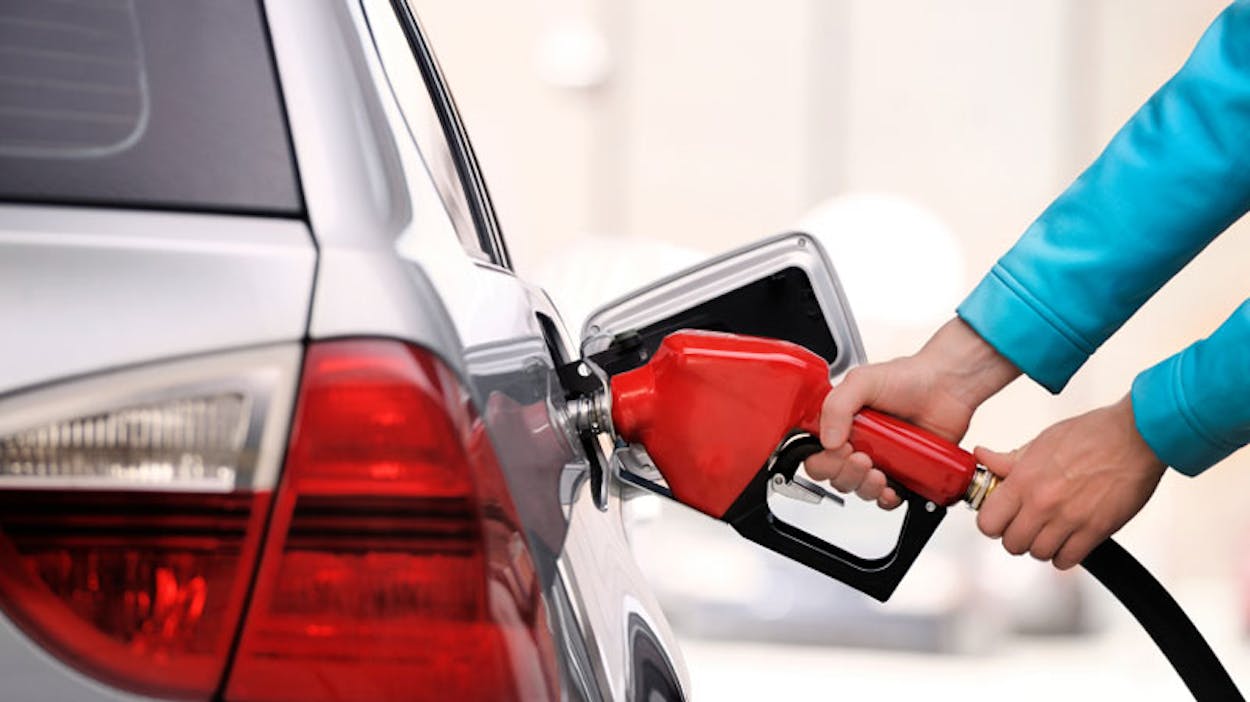“Penny-wise, pound-foolish!” is emerging as a rallying cry for Texas’s fiscal conservatives this session.
Not the catchiest slogan, perhaps, but it does have a certain resonance in an abstemious state like Texas, where the only thing less popular than a modest tax increase is the prospect of a bigger tax increase a few years from now.
Case in point: Kevin Eltife, a Republican state senator from Tyler, and the gas tax. In February, speaking at a transportation conference in Austin, he said that the state should think about raising the gas tax, maybe by a dime, to generate more revenue for Texas roads.
Developments in the intervening weeks suggest that we may be entering a new chapter in Texas history. Not a chapter in which legislators are quick to raise taxes, obviously, but a chapter in which a legislator can publicly mull the idea without being sent to walk the plank. Texas has not raised the gas tax since 1991, and in recent years occasional murmurs about doing so have been quickly shushed up in the Capitol.
In this case, Eltife’s comments attracted the predictable backlash from Michael Quinn Sullivan of the Empower Texans PAC. But plenty of conservatives have come to Eltife’s defense. The Tyler paper, which is not at all left-leaning, weighed in with an editorial saying that their senator is “the real conservative here,” and that his record on fiscal matters is “impeccable.”
Creating some breathing room for Eltife is the consensus view that Texas Department of Transportation (TxDOT) could legitimately use more money. Over the past ten years, the state has experienced significant population growth and economic growth. According to the Census, Texas added some 4.3 million people between 2000 and 2010, and according to the federal Bureau of Economic Analysis, the state’s GDP at the end of the decade was $1.2 trillion—up nearly 25 percent from the start of the decade.
One result is that the roads, which weren’t in tip-top condition to begin with, are becoming more congested and sustaining more wear and tear from trucks and commuters. That means TxDOT is facing greater demand. Revenue to the agency, however, has barely moved. Because cars are becoming more fuel-efficient, for example, revenue from the motor fuels taxes hasn’t kept pace. In fiscal year 2002, Texas collected about $2.8 billion from gasoline and diesel taxes; in fiscal year 2012, it was $3.2 billion.
“Current funding sources cannot keep pace with the rising cost of maintaining our current transportation infrastructure and building additional capacity,” wrote Phil Wilson, the executive director of the agency, in a February letter to Lieutenant Governor David Dewhurst (PDF).
As it stands, TxDOT’s annual budget (which is drawn from a variety of state funds and fees, as well as federal matching funds) is about $10 billion dollars a year. Before this session kicked off, Wilson told legislators that the agency would need more money: about $1 billion more per year to maintain the roads Texas already has—and ideally, about $3 billion more to build new ones. Note too that Wilson said “funding sources”: his point was that this is going to be a recurring issue unless new or different funding sources are found.
Compounding the issue is that in 2004, the Legislature authorized the agency to borrow money from the state’s general revenue funds. TxDOT is now in debt to the tune of about $13 billion.
“Would it have been more conservative ten years ago to raise the gas tax versus have all this debt?” Eltife asked, noting that by the time TxDOT pays off its current debt, the principal and interest will add up to about $27 billion, and it will be the year 2045. He continued: “You’ve got to have new revenue for TxDOT, in my opinion. Choose your poison: gas tax, sales tax, registration fees.”
Some legislators would choose one of the different poisons. Robert Nichols and Larry Phillips, a Republican senator from Jacksonville and a Republican representative from Sherman respectively, have filed bills that would direct the sales tax on cars themselves to TXDOT rather than to general revenue; that idea wouldn’t represent a net tax increase for consumers, although it would have an effect on the skimpy general revenue budget. Tommy Williams, a Republican senator from The Woodlands, favors the idea of raising the annual vehicle registration fee.
Where they all agree is that further borrowing isn’t the ideal way forward. Eltife offered a contrast between his thinking as a politician and his thinking in his day job, in real estate. “I have locked in long-term debt for my company,” he said. “But the difference is that I have a cash flow and a reason for the debt. When we issue debt here, it doesn’t bring in new revenue.” As the TxDOT case suggests, it may only postpone—or even exacerbate—the inevitable.
- More About:
- Politics & Policy
- Texas Legislature







